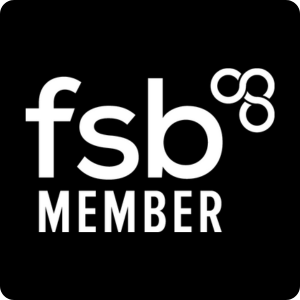When customers are considering buying a website or investing in web development services, they may have various fears and concerns. These fears often revolve around the potential risks and uncertainties associated with such a significant investment. Here are some common fears that customers may have when buying a website:
- Cost Overruns: Customers may fear that the project will end up costing more than initially budgeted. They worry about unexpected expenses or scope creep, where additional features or changes lead to increased costs.
- Low-Quality Work: Concerns about the quality of the website can be a significant fear. Customers worry that the final product won't meet their standards, won't function as expected, or will look unprofessional.
- Missed Deadlines: Delays in website development can lead to missed opportunities and increased frustration. Customers fear that the project won't be completed on time, impacting their business plans or launch dates.
- Security and Privacy: Customers are often concerned about the security of their website and the protection of sensitive data. They fear vulnerabilities that could lead to data breaches or cyberattacks.
- Lack of Control: Some customers may feel uneasy about handing over control of their website's design and functionality to a third party. They fear not having the ability to make changes or updates as needed.
- Inadequate Support and Maintenance: Worries about post-launch support and ongoing maintenance can be common. Customers fear that once the website is delivered, they won't receive the necessary support for updates, bug fixes, or troubleshooting.
- Poor Communication: Effective communication between the customer and the web development team is crucial for a successful project. Customers may fear miscommunication, lack of transparency, or difficulty in conveying their vision and requirements to the development team.
- Scams and Fraud: There is a fear of being scammed or engaging with an untrustworthy web development provider. Customers worry about losing their money or not getting what was promised.
- Technical Compatibility: Customers may worry that the website won't work well on all devices and browsers, potentially alienating a portion of their audience.
- Lack of Return on Investment (ROI): Customers often fear that the website won't generate the expected return on investment. They may question whether the site will attract enough visitors, convert leads into customers, or meet their business goals.
- Legal and Compliance Issues: Concerns about legal issues related to the website, such as copyright infringement, accessibility compliance, or data protection regulations, can cause anxiety.
- Lack of Scalability: If the website isn't designed to grow with the business, customers may worry about the need for a costly redesign or redevelopment in the future.
To address these fears and mitigate risks, it's essential for customers to do thorough research when selecting a web development partner, define clear project goals and expectations, establish a detailed contract, and maintain open communication throughout the project. Additionally, reviewing past work, asking for references, and seeking legal counsel when necessary can help alleviate concerns when buying a website.
There are several reasons why businesses and organisations choose to use marketing agencies for their marketing and advertising needs. These reasons can vary depending on the specific goals and circumstances of the company.
Expertise and Specialisation: Marketing agencies typically have a team of professionals with expertise in various aspects of marketing, including digital marketing, social media, content creation, SEO, and more. They stay up-to-date with the latest industry trends and best practices, which can be challenging for in-house teams to do.
Cost-Effective: Hiring and training an in-house marketing team can be expensive. Marketing agencies often provide cost-effective solutions, as you can choose from various service packages that fit your budget.
Scalability: Marketing agencies can scale their services up or down based on your business needs. This flexibility is especially valuable during seasonal fluctuations or when launching new products or campaigns.
Access to Tools and Technology: Marketing agencies often have access to a wide range of marketing tools, software, and analytics platforms that can be costly for individual businesses to invest in. This access can lead to more efficient and data-driven marketing campaigns.
Objectivity and Fresh Perspective: An external agency can provide a fresh perspective on your business and industry. They can offer unbiased insights and creative ideas that may not be readily available within your organization.
Time Savings: Outsourcing marketing activities to an agency frees up your internal team to focus on core business operations and strategic initiatives. This can save time and reduce the stress of managing marketing efforts in-house.
Faster Results: Marketing agencies are often able to hit the ground running and produce results more quickly than building and training an in-house team from scratch.
Access to a Network: Established marketing agencies often have valuable industry connections and networks that can be leveraged for partnerships, collaborations, and other opportunities.
Diverse Skill Set: Marketing agencies typically have a diverse team with various skills and talents, allowing them to handle a wide range of marketing tasks, from graphic design to content creation to data analysis.
Measurable Results: Marketing agencies focus on data-driven marketing strategies and can provide detailed analytics and reporting to track the success of your campaigns. This can help you make informed decisions and optimize your marketing efforts.
Risk Mitigation: Agencies often have experience working with different types of clients and industries, which can help mitigate risks associated with marketing campaigns. They are more likely to be aware of potential pitfalls and how to avoid them.
Competitive Advantage: In a competitive market, having a marketing agency on your side can help you stand out and stay ahead of your competitors through innovative strategies and creative campaigns.
It's important to note that the specific reasons for using a marketing agency can vary from one business to another. Before engaging an agency, it's crucial to define your marketing goals and objectives and choose an agency that aligns with your needs and values.





